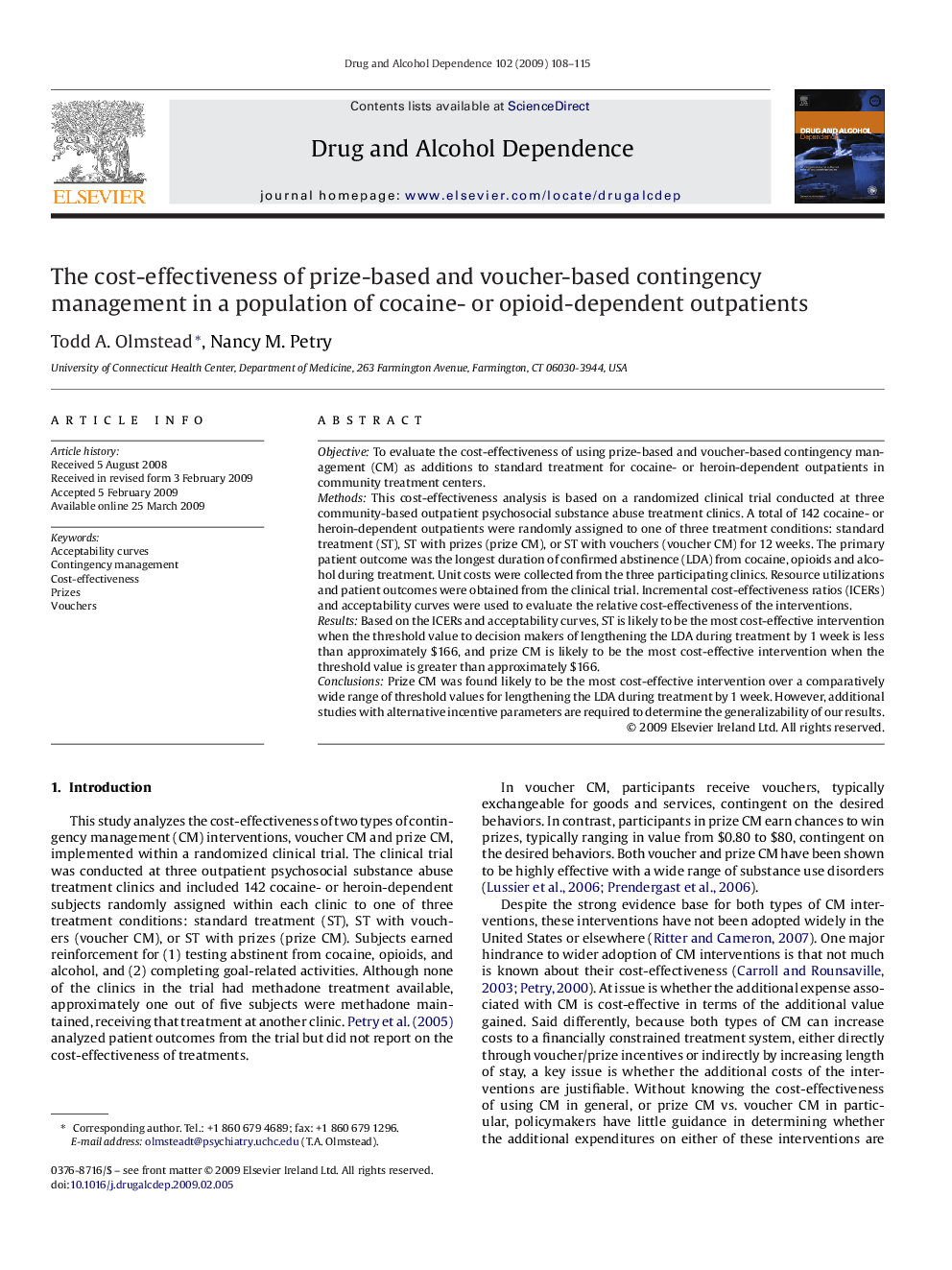| Article ID | Journal | Published Year | Pages | File Type |
|---|---|---|---|---|
| 1070827 | Drug and Alcohol Dependence | 2009 | 8 Pages |
ObjectiveTo evaluate the cost-effectiveness of using prize-based and voucher-based contingency management (CM) as additions to standard treatment for cocaine- or heroin-dependent outpatients in community treatment centers.MethodsThis cost-effectiveness analysis is based on a randomized clinical trial conducted at three community-based outpatient psychosocial substance abuse treatment clinics. A total of 142 cocaine- or heroin-dependent outpatients were randomly assigned to one of three treatment conditions: standard treatment (ST), ST with prizes (prize CM), or ST with vouchers (voucher CM) for 12 weeks. The primary patient outcome was the longest duration of confirmed abstinence (LDA) from cocaine, opioids and alcohol during treatment. Unit costs were collected from the three participating clinics. Resource utilizations and patient outcomes were obtained from the clinical trial. Incremental cost-effectiveness ratios (ICERs) and acceptability curves were used to evaluate the relative cost-effectiveness of the interventions.ResultsBased on the ICERs and acceptability curves, ST is likely to be the most cost-effective intervention when the threshold value to decision makers of lengthening the LDA during treatment by 1 week is less than approximately $166, and prize CM is likely to be the most cost-effective intervention when the threshold value is greater than approximately $166.ConclusionsPrize CM was found likely to be the most cost-effective intervention over a comparatively wide range of threshold values for lengthening the LDA during treatment by 1 week. However, additional studies with alternative incentive parameters are required to determine the generalizability of our results.
